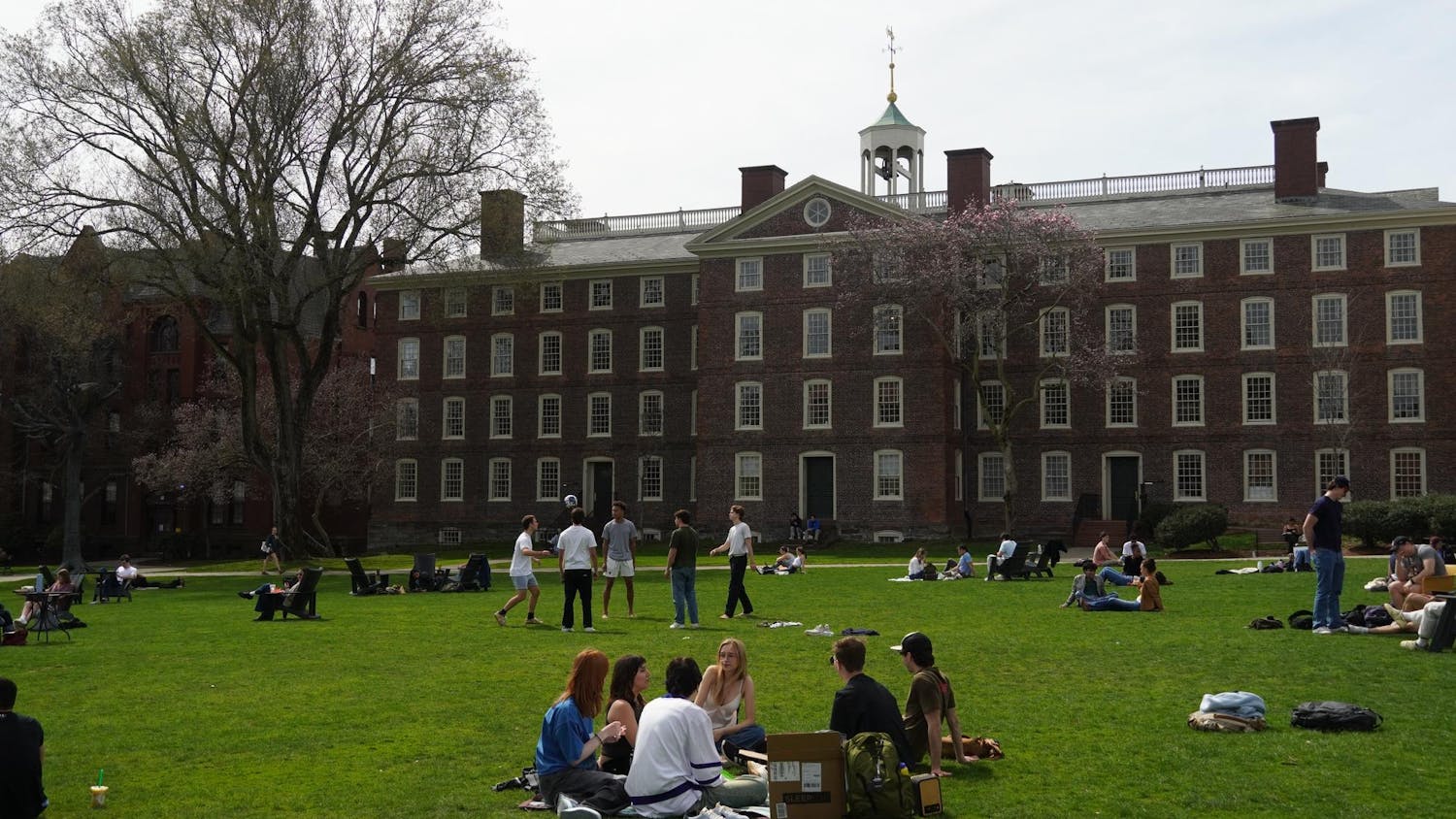Facing budget cuts, the Swearer Center for Public Service plans to focus on its most important services and redistribute responsibilities among student workers and remaining staff.
The center's reorganization comes after four program advisors were laid off last year. After the layoffs, their responsibilities — primarily supervising community programs — were reassigned to other center staff and student coordinators in an effort to preserve the programs, The Herald reported in April. The center decided that funding would allow one of the four laid-off employees to stay, Nozaki wrote in a May 5 e-mail posted on the Swearer Center website.
Part of the center's funding comes from grants and donations, most of which are specifically designated for the programs they will fund. The "biggest chunk" of Swearer Center funding comes from a center-specific endowment, which is managed by the University, said Roger Nozaki MAT'89, associate dean of the college and director of the Swearer Center.
Though the center is not part of the general University budget, the University sets a rate of payout for the endowment each year, he said.
The University's endowment, which was once worth $2.8 billion, fell about $740 million between July 2008 and June 2009 to just over $2 billion. University administrators told The Herald in May that they expected the endowment to rebound slightly to about $2.1 billion by the end of this June.
Nozaki declined to say how much money has been eliminated from the Swearer Center's budget.
In April, Nozaki posted a letter on the Swearer website informing the community of layoffs at the center due to the decreased budget. Four staff members were laid off, including three employees who oversaw "community programs," such as Algebra in Motion. The other employee worked in communications and tech support for the center, according to Nozaki.
Though staff positions at the center were cut, "we were able to maintain the number of student coordinators who run those programs directly," Nozaki said.
Many students and alumni voiced their concern for the center, some questioning what they could mean for the University's commitment to community service and especially the Providence community. About 250 students and alumni signed a letter conveying these concerns to President Ruth Simmons, The Herald reported in April.
"I think it was great that there were so many people who thought positively about the Swearer Center … that they took time to organize and write letters," Nozaki said.
Many e-mails and letters that the center received from alumni talked about how much they learned from working in the community "and how all of those things affected the trajectory of their lives," Nozaki said. "They felt very strongly that they didn't want Brown stepping back from that."
Janet Isserlis, who specialized in programs addressing adult education, has been able to return as a program manager. Her job now includes fulfilling that role as well as additional student advising and support, and she has been part of the reshuffling of responsibilities that needed staff coverage after the layoffs, according to Nozaki.
Following the budget cuts, a "working group" of about 15 students, staff, community partners and alumni met four or five times in about a four-week time frame, Nozaki said, to look more closely at "what's important to make sure we preserve" at the center.
Rachel Levenson '10, the lead coordinator of Brown Refugee Youth Tutoring and Enrichment and a member of the working group, said the layoffs of these employees also resulted in an unfortunate loss of "knowledge and connection to the community" that the staff members had built up over their years at the center. Though Levenson's program is not run through the Swearer Center, it received advising help from one of the employees who was laid off in April.
Levenson said the working group reevaluated the center's principles, resources and training.
The group agreed on three priority areas: emphasizing greater collaboration across campus with students involved in community programs not formally supported by the center, further developing student leadership and better evaluating and documenting community partnerships.
Nozaki said the center is trying to preserve "the student experience and support as much as possible." In the coming school year, the center will support the same number of students and preserve the number of fellowships through the elimination of the three positions and reduction of expenditures around the office, he said.
Each community program run through the center went through a review process, including meetings with program leaders and community partners.
One such group, the Rhode Island Urban Debate League, is receiving transitional funding as it becomes independent from the Swearer Center, Nozaki said.
Nozaki said the center is not receiving the same amount of attention from concerned community members as it was when the layoffs were first announced, though people continue to express their support and ask how they can help.
"I think people understand as well that these are tough times as far as the economy and the budget," he said.
ADVERTISEMENT




